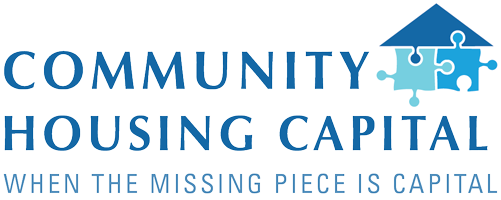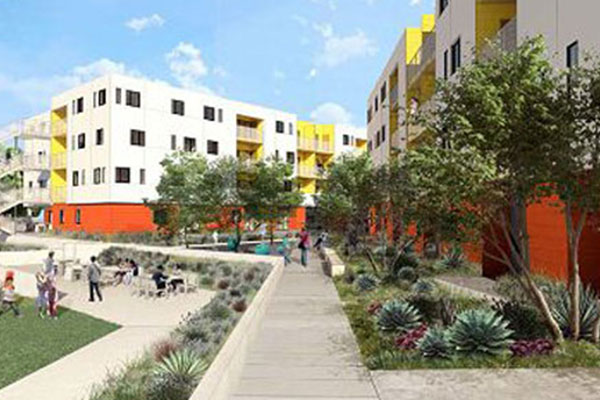As a member of the Federal Home Loan Bank Atlanta (FHLBAtlanta), Community Housing Capital (CHC) sponsors several applications each year on behalf of its borrowers to receive an FHLB Atlanta (FHLBAtlanta) AHP award for up to $500,000 for the acquisition, construction, rehabilitation, and development of affordable rental and ownership housing. In November 2019, Community HousingWorks, San Diego, received a $500,000 award through the AHP program. In addition to sponsoring borrower applications to FHLBAtlanta, CHC also provides loans to each organization to facilitate development.
In 2015, CHC provided an acquisition loan to Community HousingWorks for $822,500 to acquire a vacant 1.63-acre parcel of land with a vision to create 71 affordable homes in San Diego named the Keeler Court Apartments. The City of San Diego's 2013-2020 Housing Element notes that San Diego's market-rate rental housing is not affordable for 29% of the city's population, that is, extremely low and very low-income residents. The City's Section 8 waiting list contains over 50,000 households, and its Public Housing waiting list has over 35,000 households.
Keeler Court is located in a neighborhood with a strong demand for affordable housing. The development of the site will serve households of all sizes, particularly large families, in a transit-oriented, walkable neighborhood close to downtown job centers. The Keeler Court Apartments will also help formally homeless veterans through VASH vouchers. Similar to the application process for the Section 8 HUD housing program in California, HUD-VASH provides rental assistance by issuing federally-funded vouchers directly to landlords or housing authorities to cover a portion of the participant's rent payment. The VASH vouchers will enable disabled veterans to pay only 30% of their income for rent. Additionally, there will be 28 units set aside for residents earning less than 65% of area median income (AMI) and 42 units that serve very-low-income residents earning less than 50% AMI.

